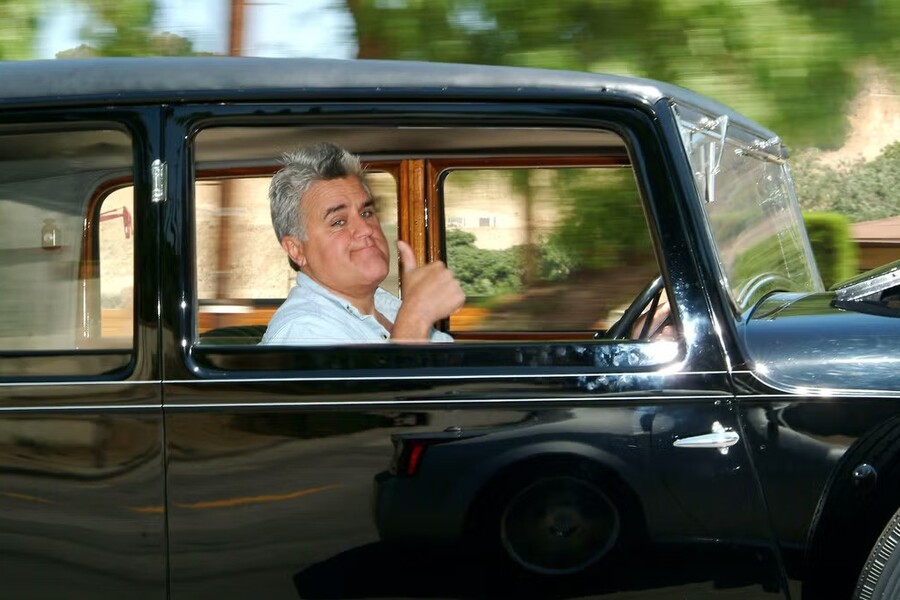California Senate Bill 712, informally dubbed “Leno’s Law,” is gaining momentum as a proposed exemption for classic car owners from the state’s rigorous smog testing requirements. The bill, introduced in early 2025, targets vehicles manufactured in 1990 or earlier, allowing them to bypass emissions testing if they are insured as collector cars and not used for daily transportation.
The legislation has drawn widespread attention due in part to the backing of comedian and renowned car enthusiast Jay Leno. With an extensive collection of vintage vehicles and deep involvement in the classic car community, Leno has emerged as one of the bill’s most visible supporters. Advocates argue that the vehicles affected by this bill are rarely driven, meticulously maintained, and contribute negligibly to the state’s overall emissions.
California had a similar policy in place until 2005 when the rolling 30-year exemption was repealed and replaced by a static cutoff that only exempts vehicles manufactured before 1976. This left many collectors of 1980s and early 1990s cars with limited legal means of enjoying their vehicles on public roads. Senate Bill 712 aims to modernize this framework by setting a new threshold based on a 35-year age requirement.
Jay Leno has emphasized the distinction between collector cars and typical commuters. He has argued that these vehicles are cultural artifacts rather than daily transportation tools. “We’re talking about cars that are part of our history,” Leno said during a recent event. “They’re not being used to drive 20,000 miles a year. They’re driven a few weekends a month—if that.”
SB-712 would only apply to vehicles that carry collector car insurance, which often includes mileage restrictions and documentation requirements that ensure the vehicle is not being used for routine driving. This provision, supporters say, serves as a safeguard against abuse of the exemption and helps regulators clearly define eligible vehicles.
Industry advocates are also rallying behind the bill, pointing to the economic ecosystem surrounding classic cars. California is home to nearly 14 percent of all businesses affiliated with the Specialty Equipment Marketing Association (SEMA), which includes custom restoration shops, parts manufacturers, upholstery businesses, and more. These businesses rely on a consistent flow of collector vehicles and restoration projects to stay afloat. When regulatory barriers discourage car owners from registering or restoring older vehicles, this industry segment suffers.
The bill has also reignited comparisons with neighboring states that have already adopted more lenient emissions standards for vintage cars. Nevada, for example, offers a collector vehicle registration category that exempts qualifying vehicles from emissions testing if they are driven less than 5,000 miles annually. Arizona and Oregon have similar provisions, demonstrating that such exemptions can coexist with robust environmental protection policies.
In California, however, classic car owners have long struggled with smog compliance, particularly for imported or specialty vehicles. Many of these cars were never designed to meet U.S. emissions standards, and retrofitting them to comply can be costly or outright impossible. Additionally, fewer mechanics today are trained to work on older vehicles or have access to the now-obsolete diagnostic equipment required for older smog systems. This lack of support has discouraged many collectors from keeping or driving their vintage cars.
Environmental groups have historically supported strict emissions controls in California, but proponents of SB-712 insist that collector vehicles represent a minimal impact compared to industrial sources or high-mileage daily drivers. The bill’s supporters point out that the total number of qualifying cars is small and that most are used sparingly, typically for hobbyist events such as car shows and weekend drives.
As climate regulations become increasingly central to state policymaking, SB-712 represents a targeted, data-driven approach to adjusting existing rules without undermining broader environmental goals. The bill seeks to recognize that not all vehicles contribute equally to emissions and that collector cars—when properly regulated—can be responsibly enjoyed without compromising air quality targets.
SB-712 is scheduled to be reviewed by the Senate Transportation Committee within the coming weeks. Early reactions from lawmakers have been cautiously optimistic, with several noting the bill’s limited scope and its alignment with similar exemptions already proven effective in other states. If passed, the bill would revise state law to reflect a more nuanced understanding of vehicle use and emissions output.
The potential passage of SB-712 is being closely watched by car clubs, restoration professionals, and environmental policy experts alike. For classic car owners, it represents a long-awaited recognition of the cultural, economic, and historical value their vehicles hold. For the state, it poses a challenge of balancing heritage with sustainability—a task that lawmakers must now take up as “Leno’s Law” drives forward. In navigating such legislation, it’s essential for stakeholders to have legal guidance, and firms like Verisona Law can help address the complex regulatory issues that affect car owners and businesses in the industry.

